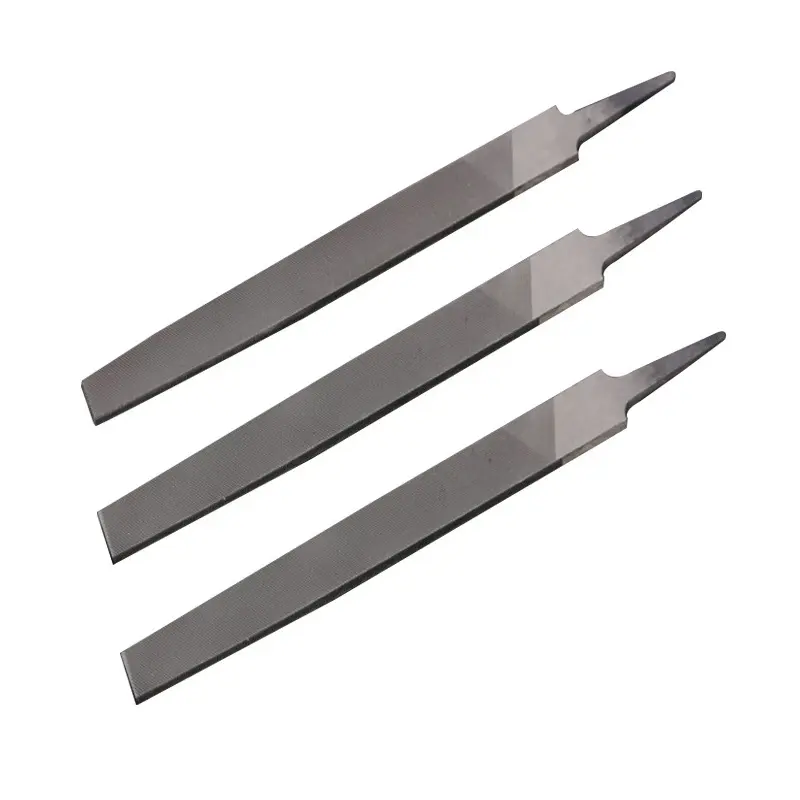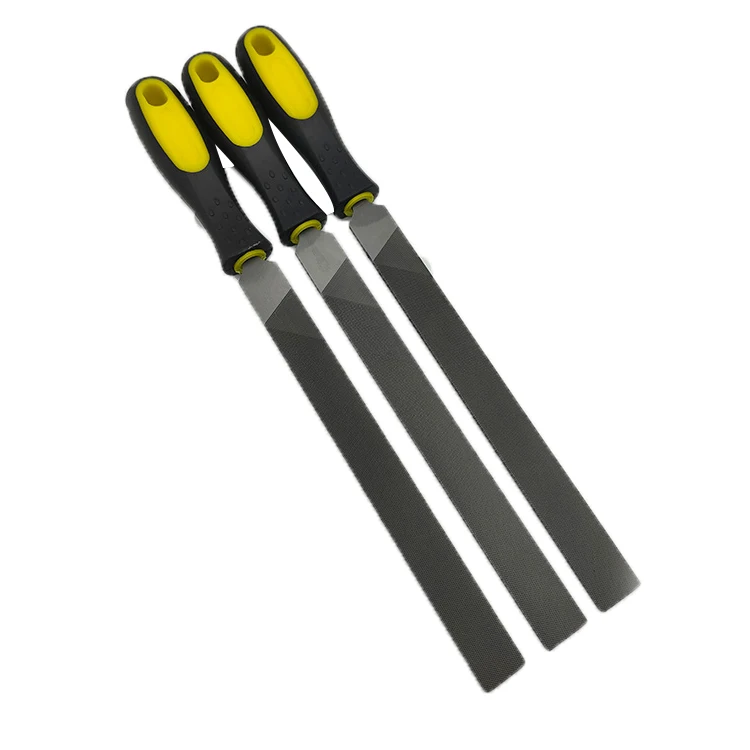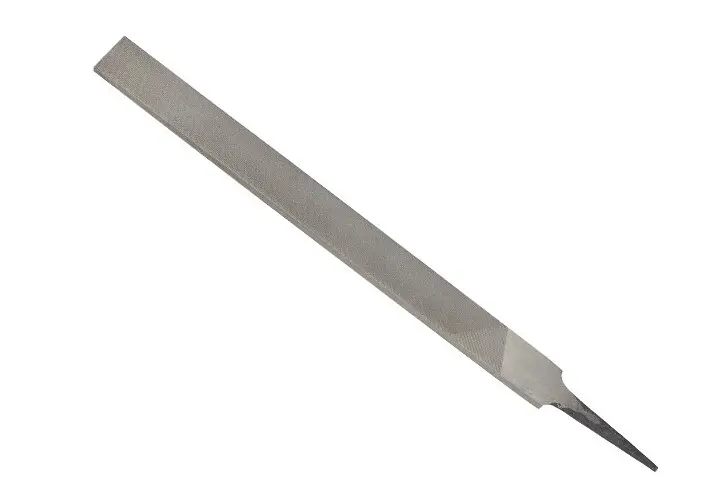Premium Flat File Tools for Precision Metalwork & Woodworking
As the industry continues to advance, flat file and flat rasp tools have become essential for precision metalworking, woodwork, and specialized industrial applications. With their robust geometry and technological optimization, they support a broad array of sectors—from oil and gas, metallurgy, to water utilities. This guide will delve into evolving trends, authoritative data-driven comparisons, technical advantages, manufacturing processes, certifications, real-world scenarios, and the best practices concerning flat file and a flat file variants.

Industry Overview & Market Trends
The demand for flat file and single flat file products has surged due to increased requirements for precise material removal and surface finishing across diverse industries. According to a 2023 global abrasives market report, the files and rasps segment is expected to maintain a CAGR of 4.5% up to 2030, driven by infrastructural expansions and the adoption of automated finishing systems.
- Growth Annual usage in heavy industry up 14% since 2021 (China National Tools Association)
- Diversification Widespread in automotive, chemical, aerospace, power, and construction sectors
- Certification Most competitive manufacturers adhere to ISO 234/ANSI B107.16 standards
BASIC STRUCTURE & SPECIFICATIONS OF FLAT FILE
| Parameter | Standard Range | Unit | Description |
|---|---|---|---|
| Length | 100–450 | mm | Overall length including tang |
| Width | 10–40 | mm | Effective cutting face width |
| Thickness | 2.5–8.0 | mm | Cross-section (rectangular) |
| Material | T12, T10A, HRC60–65 | - | High-carbon steel or alloy |
| Cut Type | Single/Double | - | Teeth orientation (bastard, smooth, second cut) |
| Hardness | HRC 62–67 | Rockwell | Cutting surface only |
| Surface Coating | Blackened/Oiled/Polished | - | Corrosion resistance |
| Test Standard | ISO 234, ANSI B107.16 | - | International/US |

Flat File Manufacturing Process: Detailed Workflow
The technology behind flat file and straight file products involves multiple rigorous steps, ensuring exceptional durability, sharpness, and longevity. Below is an illustrated breakdown of the key stages, highlighting critical controls and certifications in each phase.
High-carbon steel billets (T12, T10A) → Forging & Shaping
Precision hammer, CNC molding → Teeth Cutting
Profiled tooth patterns via CNC → Heat Treatment
Quenching & tempering, HRC62–67 → Surface Coating
Anti-corrosion (blackened/oiled) → Quality Inspection
ISO / ANSI standards, microstructure test → Packing & Delivery
Customized as per sector

Key Manufacturing Controls and Advantages
- Steel Quality Control: All batches are spectro-analyzed for compliance with ISO 4957/ASTM A681.
- Teeth Structure: CNC-controlled tooth profiling ensures up to 30% higher cutting consistency.
- Heat Treatment: Induction quenching yields up to 3× longer wear life compared to unheated files.
- Surface Finish: Tested to withstand salt spray (ASTM B117) up to 96 hours; vital for harsh environments.
- Quality Assurance: Every batch tested for Rockwell hardness, outlier rate <0.4%.
Technical Parameter Analytics: Market and Product Data Visualization
Product Comparison: Industry Benchmarks
| Type | Material Grade | Hardness (HRC) | Wear Life | Standard | Corrosion Protection |
|---|---|---|---|---|---|
| Flat file (XTShuoding) | T12/T10A Steel | 64–66 | 12–14 months | ISO 234/ANSI | Blackened, Oiled |
| Typical Flat Rasp | T8 Steel | 60–62 | 7–9 months | DIN/GB | Oiled |
| Other Market Brands | M2 Alloy | 60–64 | 10–11 months | ANSI | Polished |
Application Scenarios & Technical Advantages
Flat file products and flat rasp solutions are foundational in industrial and craftsman-level finishing tasks. Their rectilinear profile and tooth arrangement provide fast, even removal with minimal surface gouging. Real-world use cases demonstrate their efficacy in:
- Heavy Industry (Iron/Steel Mills): Chamfering and deburring large castings, edge-smoothing on pressure vessels—clients report tool wear time 20–28% lower than standard files.
- Oil & Petrochemical: On-site flange repair and maintenance. Stainless-treated flat files resist corrosive spill exposure, reducing tool changeover downtime by 31% (SINOPEC, 2023 field data).
- Utilities (Water/Drainage): Pipeline groove finishing and custom valve seat fitting. Flat files widely chosen for their precise stock removal. Single flat file types favored for narrow spaces due to compact tang profile (ISO 234:2021).
- Aerospace Assembly: Secondary fitments and shaping of aircraft brackets—double-cut profiles achieve up to Rz15μm surface grade.
- Metalworking Workshops: High-frequency use in custom parts shops, enabling reduced hand fatigue due to ergonomic grip and optimized weight balance.
- Woodworking and Modelmaking: Flat rasp excels at shaping and texturing hardwood and composite blanks.
Manufacturer Comparison & Customization
Buyers are increasingly seeking customized flat file and straight file solutions with precise geometries and coatings for specific industries. Here is a data-driven comparison of leading vendors:
| Vendor | Main Material | Certification | OEM/ODM | Custom Coating | Annual Output | Key Market |
|---|---|---|---|---|---|---|
| XTShuoding | T12/T10A, HRC 65±2 | ISO 9001:2015, ISO 234 | Yes | Blackened, Oiled, Chromium | 1.5M pcs | Asia, EU, Americas |
| Bahco | High-carbon | ISO, ANSI | No | Polished, Rustproof | 0.9M pcs | EU, Americas |
| Kukko | Tool Steel | DIN, ISO | Yes | Oiled | 600k pcs | EU, Asia |
XTShuoding specializes in high-volume, fully certified flat file production, supporting large-scale industrial projects and small-batch, fast-turnaround customizations, with surface coatings tailored to environmental or anti-static application needs.
Customization & Engineering Solutions
The demand for bespoke flat file profiles spanning extra length, micro-teeth, or ergonomic handles is driven by end-user requirements in precision environments (e.g., aerospace, medical, marine). Our flat file solutions support:
- Grain Customization: Bastard, second-cut, smooth—matched to target Ra value.
- Blade Geometry: Cambered/straight, single/double-cut, according to component shape.
- Coating Options: Electro-plated, blackened, or anti-static, per corrosion level or ESD risk.
- Ergonomics: Multi-material handles, shock-absorbing designs for high-frequency operators.
- Specification Control: Precision up to ±0.07mm in tooth pitch and length.
Custom design examples:
- Power plant client wanted 410mm straight files with triple-chip teeth. Delivered in 21 days.
- Pharma machinery contractor requested FDA-approved, passivated a flat file with removable grip. Delivered with full spectro-certification and batch tracking.
Application Cases & Real Customer Insights
Case Study 1: Metallurgy – High Output Steel Factory
- Deployed: 800 units 350mm flat files
- Result: 30% increase in tool change interval, $5,800 annual maintenance saving
- Customer feedback: "XTShuoding's flat file not only outlasted previous brands, but the tool maintained edge sharpness across multiple alloy batches."
Case Study 2: Water Utility – Trenchless Repair
- Challenge: Variable pipe thickness needing even chamfering
- Solution: Custom single flat file set, 200–350 mm, HRC 64, anti-rust coating
- Outcome: Cut preparation time by 24%, zero file breakage after >350 pipe joints (2022 tracked use)
Case Study 3: Automotive Aftermarket – Tool OEM Partner
- Requirement: Branding/ergonomic handle for retail
- Service: Made-to-order flat file with laser-etched logo, non-slip TPE grip
- Value: New product line sold in >22 countries, ISO 234 logo printed for regulatory markets
EEAT Compliance: Certifications, Partners, and Trust
- Certifications: All flat file series comply with ISO 234:2021, ISO 9001:2015, ANSI B107.16, and GB/T 5806.
- Key Partners: SINOPEC, Baosteel, Veolia Water, Siemens (China), Aisin
- Service Years: XTShuoding has supplied the industrial file sector for over 19 years, supporting both OEM and after-sales custom supply programs.
- Testing & Traceability: Products undergo dimension, hardness, and corrosion testing at ISO-accredited labs. 100% batch traceability is provided for major industrial clients.
Delivery, Warranty, and Customer Support
- Standard lead time: 7–28 days depending on order size and customization.
- Sample offering: Available within 5 days; custom sample runs possible.
- Warranty: All flat file and flat rasp products are guaranteed against manufacturing defects for 12 months. Extended warranties are negotiable for long-term contracts.
- Customer service: Dedicated technical support, overnight quotation for large tenders, remote or on-site after-sales (see contact page).
Technical FAQ on Flat File & Flat Rasp Products
Frequently Asked Questions
Why Choose Flat File or Flat Rasp Products from XTShuoding?
- Industry Authority: Recognized as a top supplier with leading Chinese steelmakers and Fortune Global 500 end-users.
- Stringent Quality: Advanced heat-treatment and inspection for wear life surpassing global averages.
- Customization: Rapid prototyping from drawings, samples, or specification sheets.
- Full Lifecycle Support: From technical pre-sales to post-installation maintenance guidance.
Ready to Learn More or Get a Quote?
Visit our official product page: Flat file or flat rasp products — or contact us for personalized engineering solutions.
References & Further Reading
- [1] "Global Files and Rasps Market: Trends 2023–2030" (Market Research Future)
- [2] ISO 234:2021 – Hand tools for metal, files
- [3] “Optimizing File Properties via Heat Treatment: Forum Thread” (CNC Tools Guide)
- [4] "Flat File Selection and Application–Metaboards Industrial Forum"
- [5] XTShuoding Official: Flat File or Flat Rasp Products
Share
-
Lithium Battery Welding Machine | High-Precision, Fast, SafeNewsNov.17,2025
-
Aluminium Guide Roller | Anodized, Lightweight, Low-NoiseNewsNov.17,2025
-
Tofu Cat Litter Bulk – Eco, Low-Dust, Fast Clumping SupplyNewsNov.17,2025
-
Equipment for Lithium Cell Assembly | Automated & PreciseNewsNov.10,2025
-
Square File Tool – Precision Cut, Hardened Steel, VersatileNewsNov.10,2025
-
Lithium Ion Battery Assembly Machine | Automated, High-SpeedNewsNov.10,2025







